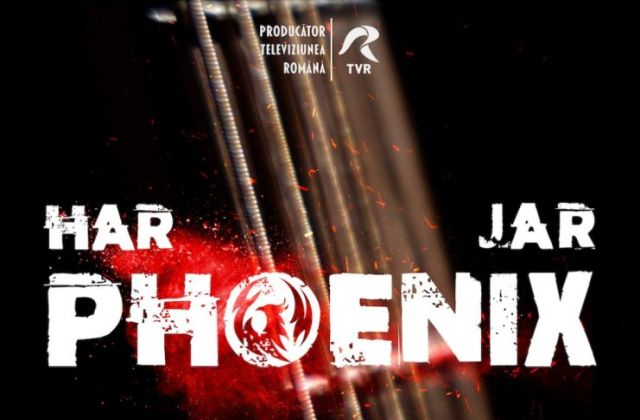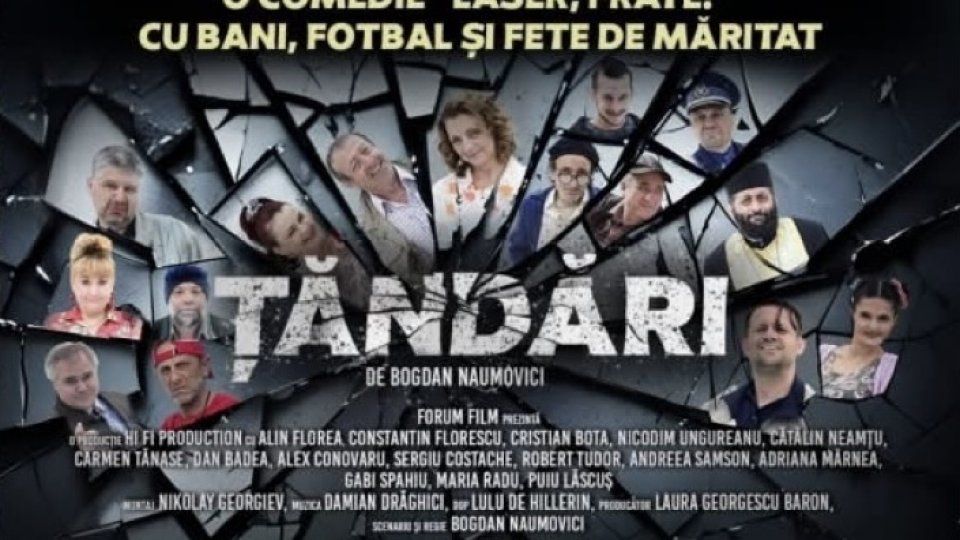Phoenix.Har/Jar
An anniversary documentary celebrates the legendary rock band Phoenix

România Internațional, 11.02.2023, 12:01
Todays edition is devoted to Phoenix, the legendary rock band who in 2022 celebrated 60 years since it was established. To celebrate the event, the members of the band were brought together into a documentary, titled “Phoenix.Har/Jar, which premiered in cinema halls on January 20th.
The film directed by Cornel Mihalache, a project completed in 2022 by the Romanian Television through the TVR Production House, gathers emotional testimonies about the members of the band founded in 1962, in Timișoara. The most spectacular albums of the Phoenix band were composed in the period 1971-1977, by Nicu Covaci, Mircea Baniciu, Ioji Kappl, Costin Petrescu, Valeriu Sepi: “Those who gave us a name” (1972), “Mason Manole” ( 1973), “Flute Bud” (1974), “Fablesongs” (1975). Many of the songs included in these albums were written by two very talented artists, Şerban Foarță and Andrei Ujică. “Phoenix. Har/Jar” reunites the members of the band from the period before they left communist Romania in 1977, and highlights the important moments in the bands tumultuous chronology, from the first appearances in 1962 under the name “Sfinții” (the Saints) to the present day.
The documentary presents, for the first time, the events that the musicians went through in the country, the relationship with the Securitate, the communist political police, their departure from Romania and the bands activity before and after the 1989 Revolution. Claudia Nedelcu Duca, producer and co-writer of the documentary “Phoenix. Har/Jar”.
“Its a story that aims to shed light on all the legends that accompanied the band for 60 years, a film in which all the members of the band are present. Cornel Mihalache and I set out, with the help of the TVR Production House, to tell this story, which is a very beautiful one. The quarrels and misunderstandings that filled the pages of tabloids are secondary things, details that do not destroy the huge value that these people represented and still do for rock music in Romania. I captured in the film both the period before 1977, when the band members decided to leave Romania, but also all subsequent attempts to reunite, attempts that continue to gather an interested audience, who can still sing the bands songs. The film only aims to present people who were both victims and heroes of that period. Thats what we set out to do, to make a story that would be told by all the band members, and we were able to give the floor to everyone who has been part of Phoenix and who is alive. As I said before, we tried not to leave anything out, to capture what happened to the band even after the 90s. It seems to me that the film has a lot of emotion, its like a puzzle that we, together with Roxana Elekes, who edited it, created from the perspectives of the artists you see in the documentary. Basically, we have a story that the members of the Phoenix band manage to create, an emotional story, and very well-articulated. In my opinion, it is a film not to be missed.”
Mircea Baniciu, former vocal soloist of the band Phoenix and founding member of the band Pasărea Colibri, was co-opted in Phoenix in 1971, while he was a first-year student at the Faculty of Architecture. It was the moment when his life changed radically. We spoke with Mircea Baniciu about the bands heyday, the years 1971-1977.T
“I want to say that the good moments, the best, we also owe to other artists and friends with whom I collaborated. I wouldnt want it to be understood that Phoenix was only about us, the band members, we had a whole team behind us. I will mention, first of all, these great text writers, Șerban Foarță, Andrei Ujică, Victor Cârcu, Victor Șuvăgău. We also had other artists around us and we always collaborated with all these friends, they helped us a lot, they were very close to us. The band Phoenix kind of had a club mentality, we saw each other a lot and spent a lot of time together, there were things that kept us together at some point. I mean our important moments, but also our holidays, and I think it was very important that we lived in Timișoara, a cosmopolitan city even during communism. And the atmosphere there brought us closer to each other. In addition, it is known that that communist period did not offer you many possibilities. For us, in its early days, Phoenix was a great joy. There were moments of ecstasy on stage and that energy reached the audience, those who loved us and appreciated what we did.”
The premiere of the film was doubled by the release of the book “Phoenix. Har/Jar ” containing interviews from 1962-1989 plus graphic inserts from the Security Archives, held by the National Council for the Study of Security Archives. The texts presented in the book include the full transcript of the interviews conducted in the TVR studios and in other locations in the country and abroad. (MI)





























